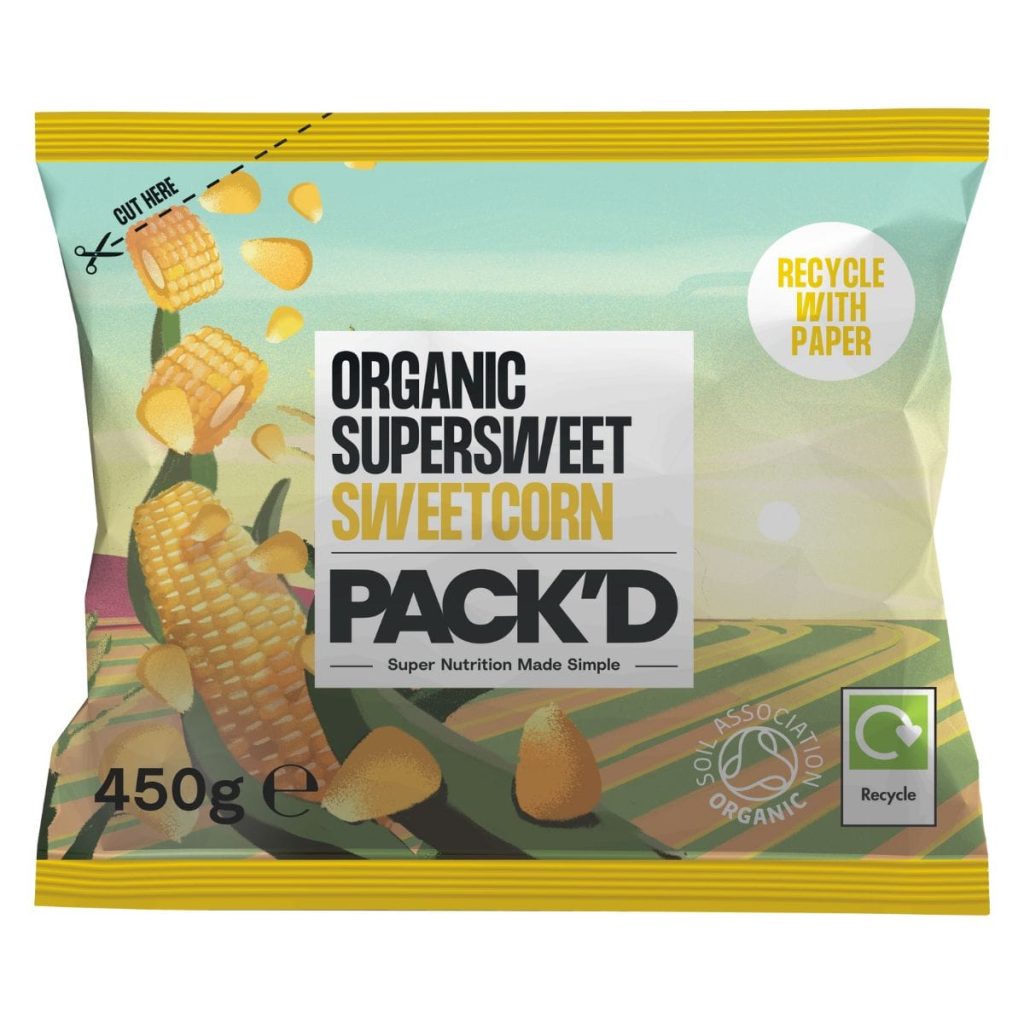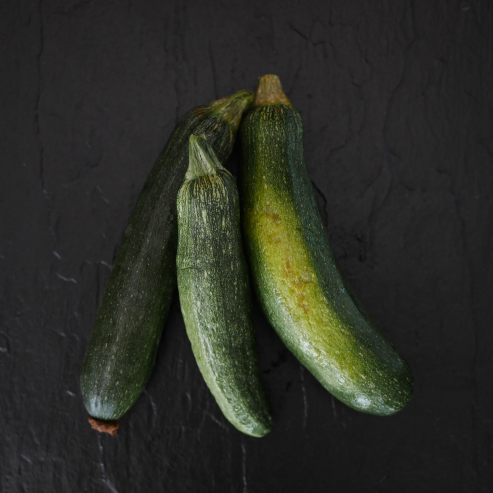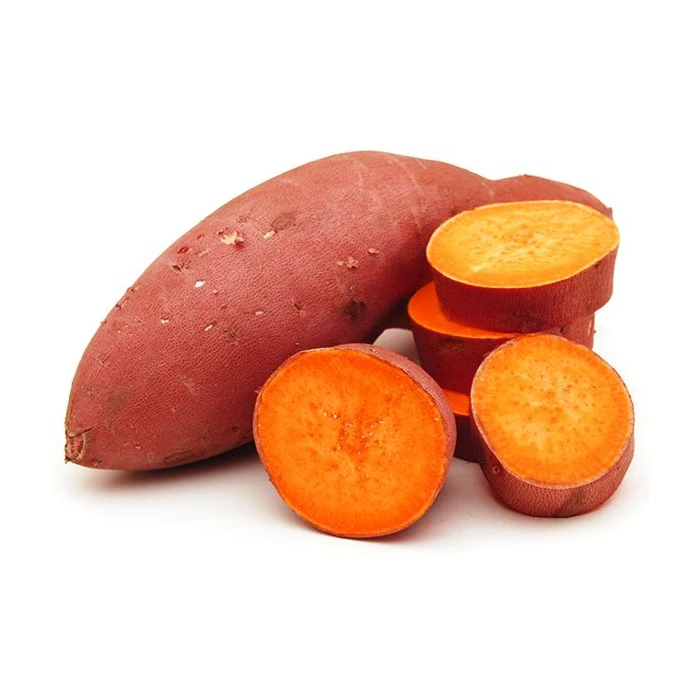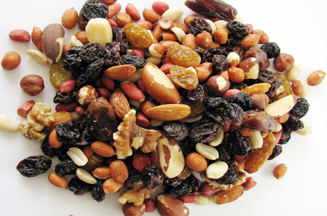Organic sweetcorn is a delicious, healthy treat. It offers a burst of flavor and nutrition.
But what makes it special? Organic sweetcorn is grown without synthetic fertilizers or pesticides. This means it’s free from harmful chemicals. Eating organic sweetcorn supports sustainable farming. It also promotes biodiversity in agriculture. This tasty vegetable is packed with vitamins and minerals.
It’s rich in fiber, helping digestion. Whether boiled, grilled, or eaten raw, it delights the taste buds. Plus, organic sweetcorn is versatile. You can add it to salads, soups, or casseroles. It’s a wonderful choice for conscious consumers. Dive in to explore the benefits and joys of organic sweetcorn. Discover why it deserves a place at your table.
Benefits Of Organic Sweetcorn
Organic sweetcorn offers a delicious taste while being free from harmful pesticides. Packed with fiber and essential nutrients, it supports healthy digestion and boosts energy levels. Eating organic sweetcorn also helps promote sustainable farming practices, benefiting both the environment and local communities.
Organic sweetcorn is not just a delicious addition to your meals; it’s a powerhouse of benefits that can enhance your health and the environment. Imagine biting into a juicy, sweet ear of corn, knowing that it’s packed with nutrients and grown sustainably. If you’re curious about how organic sweetcorn can make a difference in your life and the planet, you’re in the right place.Nutrient-rich Qualities
Organic sweetcorn is full of essential nutrients that can boost your health. It’s rich in vitamins like B-complex and vitamin C, which are crucial for maintaining energy levels and supporting your immune system. Additionally, the fiber content in organic sweetcorn aids digestion and keeps you feeling full longer. Have you ever wondered why some foods leave you feeling sluggish? Organic sweetcorn’s natural sugars provide a quick energy source without the crash that comes from processed snacks. Next time you’re looking for a mid-afternoon boost, consider adding organic sweetcorn to your diet.Environmental Impact
Choosing organic sweetcorn also means you’re making a positive impact on the environment. Organic farming practices avoid synthetic pesticides and fertilizers, which can harm soil health and local ecosystems. By supporting organic agriculture, you’re helping to preserve biodiversity and reduce pollution. Think about how your food choices affect the planet. Organic sweetcorn is grown using methods that promote soil fertility and water conservation. Every time you opt for organic, you’re contributing to a healthier planet for future generations. What small change can you make today to support sustainable agriculture? By choosing organic sweetcorn, you’re not just nourishing your body, but also taking a step toward a greener world.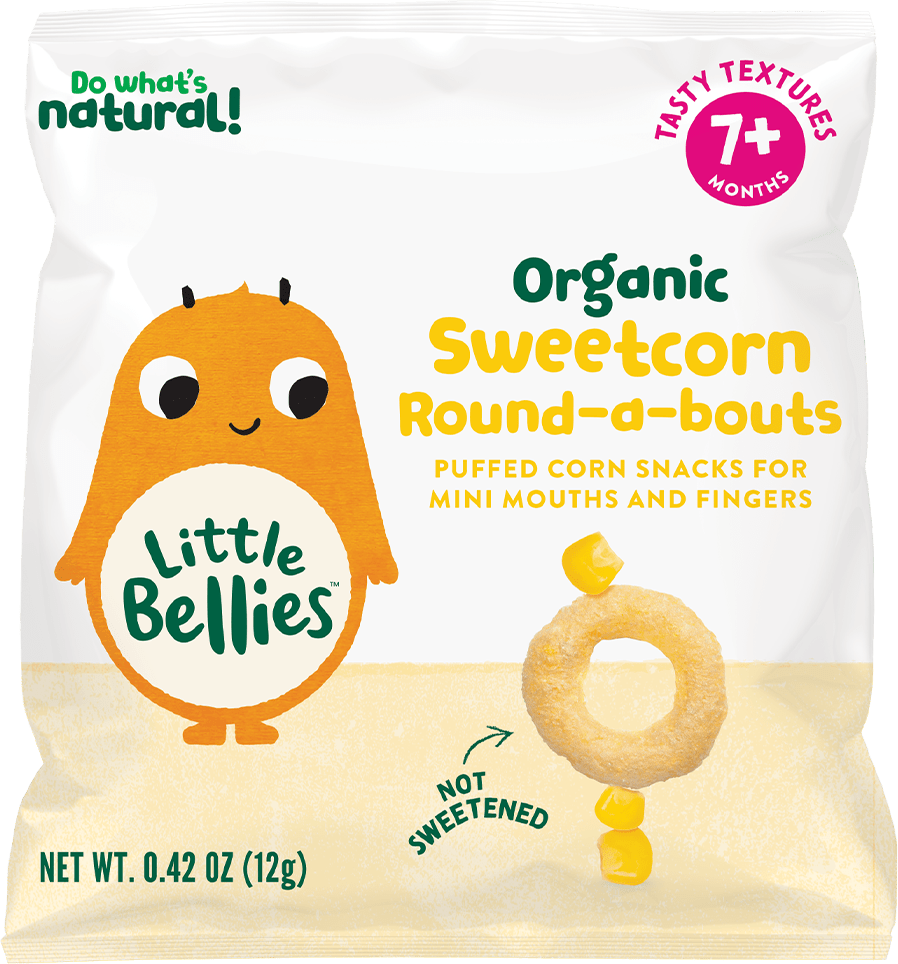
Credit: littlebellies.com
Nutritional Profile
Organic sweetcorn boasts a rich nutritional profile, packed with essential vitamins and minerals. High in fiber, it supports digestive health.
Organic sweetcorn is more than just a delicious summer treat; it’s a powerhouse of nutrients that can benefit your health in numerous ways. Whether you enjoy it grilled, boiled, or straight from the cob, this vibrant yellow vegetable is packed with essential nutrients that can make a significant difference in your daily diet. Let’s dive into its nutritional profile to understand why adding organic sweetcorn to your meals is a smart choice.Vitamins And Minerals
Organic sweetcorn is rich in essential vitamins and minerals that support your overall well-being. It contains Vitamin B6, which plays a crucial role in brain health and mood regulation. There’s also a good amount of Vitamin C, known for boosting your immune system and helping your body repair tissues. Minerals like magnesium and potassium are present in sweetcorn. Magnesium helps with muscle function and energy production, while potassium supports heart health by maintaining healthy blood pressure levels. Eating sweetcorn can be an easy way to add these vital nutrients to your diet.Fiber Content
Fiber is a key component of a balanced diet, and organic sweetcorn is an excellent source of it. Fiber aids digestion by promoting regular bowel movements and preventing constipation. If you’ve ever felt the discomfort of a sluggish digestive system, you know how essential fiber is. Moreover, fiber can help you feel full longer, which is beneficial for weight management. Imagine enjoying a tasty ear of sweetcorn and knowing it’s helping you stay satisfied. Why not reach for sweetcorn next time you’re planning a meal? It’s a delicious way to boost your fiber intake. Isn’t it fascinating how a simple vegetable can be so packed with nutrients? Next time you savor organic sweetcorn, remember the vitamins, minerals, and fiber you’re enjoying with every bite.Organic Vs Conventional Sweetcorn
Organic sweetcorn offers a natural taste with fewer pesticides. It often has more nutrients and a fresher flavor. Many people prefer it for its health benefits and eco-friendly farming practices.
### Organic vs Conventional Sweetcorn When you stand in the grocery aisle, choosing between organic and conventional sweetcorn can feel daunting. Both options have their merits, but they also have distinct differences. Let’s dig into what sets them apart. ###Pesticide-free Advantages
One of the biggest benefits of organic sweetcorn is its lack of synthetic pesticides. This means you are less likely to consume harmful chemicals. It’s a reassuring thought, especially if you have kids. Eating organic sweetcorn can also be better for the environment. Organic farming practices help maintain soil health and reduce water pollution. Your choice can make a difference. ###Taste And Texture Differences
If you’ve ever bitten into an ear of organic sweetcorn, you might have noticed a difference in taste. Organic sweetcorn often has a sweeter, more intense flavor. It’s like tasting summer in every bite. Texture-wise, organic sweetcorn can be crisper and juicier. Conventional sweetcorn can sometimes be a bit tougher due to the chemical treatments. Which do you prefer: the natural crunch of organic or the uniformity of conventional? ### Final Thoughts Choosing between organic and conventional sweetcorn depends on your preferences and values. Do you prioritize a pesticide-free diet, or do you focus more on cost? The choice is yours, but now you’re armed with the facts to make an informed decision.Incorporating Sweetcorn Into Meals
Sweetcorn is a versatile and nutritious ingredient. It adds flavor and color to meals. Incorporating sweetcorn into everyday dishes is simple and rewarding. It is rich in vitamins and minerals, promoting healthy eating. Sweetcorn is suitable for various recipes, offering delightful culinary experiences.
Healthy Recipes
Sweetcorn enhances salads with a touch of sweetness and crunch. Try it in a fresh corn and avocado salad. Combine sweetcorn with diced tomatoes and onions. Add a squeeze of lime for extra zest. For a hearty option, prepare sweetcorn and black bean chili. It is a filling dish with plenty of protein. Sweetcorn muffins make for a healthy breakfast. They are easy to prepare and delicious.
Cooking Techniques
Grilling sweetcorn brings out its natural sugars. Brush with olive oil before grilling. This adds a smoky flavor to the kernels. Boiling is a simple method for cooking sweetcorn. Add some salt to the water for extra taste. Steaming preserves the nutrients and color. It is a quick and easy way to cook sweetcorn. Roasting sweetcorn in the oven creates a caramelized texture. Use a sprinkle of herbs for added aroma.
Buying And Storing Tips
Organic sweetcorn is a delicious and healthy choice. Ensuring it remains fresh requires careful selection and storage. Follow these tips for the best results.
Choosing Fresh Produce
Look for bright green husks. They should be tightly wrapped around the corn. The silk at the top should be brown and sticky. This indicates ripeness. Avoid husks that are dry or brown. Feel the kernels through the husk. They should be firm and plump.
Optimal Storage Methods
Store sweetcorn in the refrigerator. Keep it in its husk. This maintains moisture and freshness. Place it in a plastic bag. Use it within two days for the best taste. If you need to store longer, consider freezing. Blanch the corn first. Then, remove the kernels and freeze in airtight bags.

Credit: www.pccmarkets.com
Seasonal Availability
Understanding the seasonal availability of organic sweetcorn can enhance your culinary experiences and ensure freshness in your meals. Sweetcorn, with its juicy kernels and sweet taste, is a favorite in many households. Knowing when it is at its peak can help you enjoy its full flavor and support sustainable farming practices.
Best Times To Buy
Organic sweetcorn thrives during the warmer months. Typically, you’ll find the freshest corn between late summer and early fall. During this period, local farms harvest their crops, providing the best quality sweetcorn.
Planning your purchases around this timeframe ensures you get sweetcorn bursting with flavor. As you bite into those fresh, juicy kernels, you will notice a significant taste difference compared to off-season purchases. Have you ever considered how much more delicious your summer BBQs could be with the freshest corn?
Local Sourcing Options
Buying organic sweetcorn locally is not only convenient but also supports your community’s farmers. Look for farmers’ markets or local farm stands in your area. These places often offer the freshest produce harvested just days before sale.
When you buy locally, you reduce the carbon footprint associated with transportation. Plus, you get a chance to ask farmers about their growing practices, ensuring that you’re getting truly organic sweetcorn. Is there a better way to enjoy your corn than knowing exactly where it came from?
Consider joining a local CSA (Community Supported Agriculture) program. These programs often provide seasonal produce, including sweetcorn, directly from farms to your table. This option not only guarantees freshness but also allows you to explore other seasonal delights alongside your corn.
Embracing the seasonal availability of organic sweetcorn can transform your meals and contribute to a sustainable lifestyle. So, when will you plan your next sweetcorn feast?
Health Benefits
Organic sweetcorn isn’t just a delicious addition to your meals—it’s packed with health benefits that can enhance your well-being. Whether you’re a fan of its sweet, crunchy kernels or simply looking for nutritious options, organic sweetcorn offers more than just flavor. Let’s dive into how this humble vegetable can support your digestive and heart health.
Digestive Health
One of the standout benefits of organic sweetcorn is its fiber content. Fiber plays a crucial role in maintaining a healthy digestive system. It helps keep things moving smoothly, preventing constipation and promoting regular bowel movements.
Have you ever felt bloated after a heavy meal? Adding sweetcorn to your diet might help. The fiber in sweetcorn aids in digestion, making you feel lighter and more comfortable after eating.
If you’re looking to improve your gut health, sweetcorn could be your new best friend. Its fiber content supports the growth of beneficial gut bacteria. These bacteria are essential for a robust digestive system and overall health.
Heart Health Support
Heart health is something we all should prioritize. Organic sweetcorn can be a helpful ally in this quest. It’s rich in antioxidants like lutein and zeaxanthin, which are known to support heart health.
Picture this: you’re enjoying a barbecue with friends and family. Adding sweetcorn to the menu not only enhances the taste but also contributes to a heart-friendly meal. The antioxidants in sweetcorn help reduce inflammation, a key factor in heart disease.
Sweetcorn is also a good source of folate, a B-vitamin that plays a role in reducing homocysteine levels. Elevated homocysteine can increase the risk of heart disease. By including sweetcorn in your diet, you take a step towards better heart health.
How often do you think about the impact of your meals on your heart? It’s worth considering, and organic sweetcorn makes it easy to choose health without sacrificing flavor.
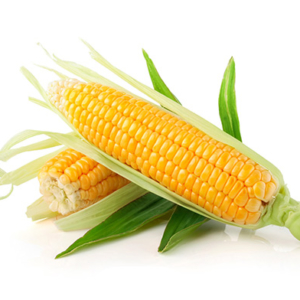
Credit: ripeme.com
Addressing Common Myths
Organic sweetcorn is a beloved staple in many households. Yet, several myths surround it, causing confusion. This section sheds light on common misconceptions. Let’s explore the truth behind these myths.
Debunking Gmo Concerns
Many people worry that organic sweetcorn is genetically modified. This is a myth. Organic sweetcorn is grown naturally. It adheres to strict organic farming standards. No genetic modification is involved. The USDA certifies organic crops. This ensures they are free from GMOs. Buying organic sweetcorn means choosing a natural product.
Clarifying Sugar Content
Some believe organic sweetcorn is high in sugar. This is misleading. Sweetcorn contains natural sugars, but in moderate amounts. It is lower than many fruits. The sugars in sweetcorn come with fiber. Fiber helps control blood sugar levels. Eating sweetcorn can be part of a balanced diet. It provides essential nutrients without excessive sugar.
Frequently Asked Questions
Should Sweet Corn Be Organic?
Sweet corn doesn’t have to be organic, but organic options may avoid synthetic pesticides. Organic farming supports environmental sustainability and can offer healthier produce. Consumers may choose based on personal preference, environmental concerns, or health considerations. Organic sweet corn is a popular choice for those prioritizing natural farming methods.
What’s The Difference Between Organic Corn And Regular Corn?
Organic corn is grown without synthetic pesticides or fertilizers. Regular corn may use these chemicals. Organic corn is non-GMO, while regular corn can be genetically modified.
Can You Buy Corn That Is Not Genetically Modified?
Yes, you can buy non-GMO corn. Look for labels indicating “Non-GMO” or “organic” at grocery stores or farmers’ markets.
Is Sweet Corn Good For Gut Health?
Sweet corn is beneficial for gut health due to its high fiber content. Fiber aids digestion and supports healthy gut bacteria. It also helps prevent constipation by promoting regular bowel movements. Including sweet corn in your diet can contribute to overall digestive health.
Conclusion
Organic sweetcorn is a delicious and healthy choice. It offers great taste and high nutrition. Growing it supports sustainable farming practices. Enjoy it fresh, grilled, or in recipes. Make organic sweetcorn a part of your diet today. It’s a simple step towards better health.
Your body and the environment will thank you. So, give it a try and savor the natural goodness.
{ “@context”: “https://schema.org”, “@type”: “FAQPage”, “mainEntity”: [ { “@type”: “Question”, “name”: “Should sweet corn be organic?”, “acceptedAnswer”: { “@type”: “Answer”, “text”: “Sweet corn doesn’t have to be organic, but organic options may avoid synthetic pesticides. Organic farming supports environmental sustainability and can offer healthier produce. Consumers may choose based on personal preference, environmental concerns, or health considerations. Organic sweet corn is a popular choice for those prioritizing natural farming methods.” } } , { “@type”: “Question”, “name”: “What’s the difference between organic corn and regular corn?”, “acceptedAnswer”: { “@type”: “Answer”, “text”: “Organic corn is grown without synthetic pesticides or fertilizers. Regular corn may use these chemicals. Organic corn is non-GMO, while regular corn can be genetically modified.” } } , { “@type”: “Question”, “name”: “Can you buy corn that is not genetically modified?”, “acceptedAnswer”: { “@type”: “Answer”, “text”: “Yes, you can buy non-GMO corn. Look for labels indicating \”Non-GMO\” or \”organic\” at grocery stores or farmers’ markets.” } } , { “@type”: “Question”, “name”: “Is sweet corn good for gut health?”, “acceptedAnswer”: { “@type”: “Answer”, “text”: “Sweet corn is beneficial for gut health due to its high fiber content. Fiber aids digestion and supports healthy gut bacteria. It also helps prevent constipation by promoting regular bowel movements. Including sweet corn in your diet can contribute to overall digestive health.” } } ] }
